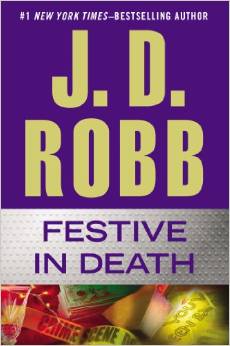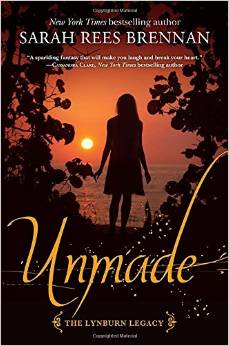This comes as zero surprise to anyone who has ever met me. But it’s not just a personal preference. No, really! It’s also pretty much required for what I do. I run an independent bookstore: talking to customers is a large part of my job. One of the best parts, in fact. I spend a large chunk of my days in conversations with strangers, learning their preferences, teasing out their likes and dislikes. Needless to say, after a while, many of them cease to be strangers. Some of them even become friends.
I think that’s why one of my fiction peeves is a perennially isolated protagonist, the noir-esque loner. And I do mean constantly isolated: a character who starts out isolated and becomes less so over the course of the book is a completely different animal. Person. Character. Whatever. If she shows any sort of social development, no matter how incremental, I’m willing to buy in. But a character who is without friends/family/cordial acquaintances at the beginning of a story and equally without company at the end?*
Ugh.
And I’m not just talking about romantic development either. Obviously, that’s of paramount importance in a Romance, but there also needs to be more. We live, as Richard Florida puts it, in a web of strong and weak ties. The strongest are what centre us of course, but that doesn’t mean that the weak ties are unimportant. Nor that they can’t becomes stronger in time.
That’s one of the reasons I enjoy J.D. Robb (aka: Nora Roberts)’s ‘In Death’ series. After thirty-nine (39!) strongly romantic futuristic police  procedurals, protagonist Eve Dallas is no longer the clenched and solitary character she was in book one. She has cordial and respectful dealings with her superiors and comfortable ties to her subordinates. She’s learning how to have relationships with family, even if the family isn’t her own. She has a husband whose nature helps balance and smooth out the roughest patches of her own — and she does the same for him. And she also has friends, real friends, the kind she’s step into stunner fire for. Or even, in the case of the most recent title, Festive In Death, go Christmas shopping for.
procedurals, protagonist Eve Dallas is no longer the clenched and solitary character she was in book one. She has cordial and respectful dealings with her superiors and comfortable ties to her subordinates. She’s learning how to have relationships with family, even if the family isn’t her own. She has a husband whose nature helps balance and smooth out the roughest patches of her own — and she does the same for him. And she also has friends, real friends, the kind she’s step into stunner fire for. Or even, in the case of the most recent title, Festive In Death, go Christmas shopping for.
It’s an amusing enough scene. Eve hates crowds, and shopping, and is only just beginning to understand how to enjoy celebrations. But for the women that mean the most in her life, she’s willing to brave the holiday insanity. And watching her describe her friends to the salesclerk– in a manner that is part police report and part character study — was a revelation. The scene in which she actually gives her partner, Peabody, her gift is moving rather than funny, and a real demonstration of just how far Eve has come.
On a completely different front is Kami Glass, the main character of Sarah Rees Brennan’s ‘Lynburne Legacy’. The series consists of three books: Unspoken, Untold, and the very recently released Unmade. The ‘Lynburne Chronicles’ is Fantasy rather than Romance, but the love stories it contains are complicated and beautiful, and well-developed enough to warrant discussion here.
 Kami Glass is sixteen. She wants to be a reporter, and is trying to chase down the truth behind the legend of the Lynburne family — the local scions who moved away years ago and have only just returned. She’s smart, inquisitive and funny as hell. And she has a secret invisible friend with whom she shares her every thought. She has always known his name was Jared. She didn’t know it was Jared Lynburne.
Kami Glass is sixteen. She wants to be a reporter, and is trying to chase down the truth behind the legend of the Lynburne family — the local scions who moved away years ago and have only just returned. She’s smart, inquisitive and funny as hell. And she has a secret invisible friend with whom she shares her every thought. She has always known his name was Jared. She didn’t know it was Jared Lynburne.
Kami is nothing like Eve. Her childhood was happy; her parents are alive and loving; she has two younger brothers she thinks are terrific (even if they’re occasionally annoying). She has a best friend and a circle of generally positive relationships. I can’t say too much more without spoiling Rees Brennan’s seriously traumatic cliffhanger endings, but suffice it to say that even well-developed Kami learns that there is more to relationships, love, friendship, and even family than she ever knew.
She learns that sometimes, no matter how difficult it feels to be sincere, you have to resist the urge to go for the joke. That people can disappoint you and still not be wrong. That people you thought you knew inside and out can still surprise you. That the words you say matter — and the ones you don’t say can matter even more. That love isn’t a choice you make once, but all the choices you make every day.
It’s a great series. You should read it. Go ahead. I’ll wait.
In the meantime, I’ll talk about another series I’m loving: ‘The United States of Asgard’ by Tessa Gratton. This US of A is one in which the Norse gods settled centuries ago. Though the technology is reassuringly modern, the rhythms of the seasons and of daily life are not exactly what we’re used to from our neighbours to the south. (Canada, by the way, is mostly trackless waste in these books. The North was overrun by trolls years ago. Go figure.)
The first book, Lost Sun, surprised and delighted me. Dense, mythic, and far more serious than the cover makes it look, it is the story of Soren, a berserker who has spent his life trying to control the frenzy inside him, and Astrid, a seer whose visions are the world’s only hope. When Baldur, the god of light, fails to rise, Soren and Astrid are the ones who find him, lost and alone, with no memory. And then things get really strange.
Strange Maid follows the events of Lost Sun, but it’s not a direct sequel. The main character is Signy Valborn, the youngest of the Valkyries,  chosen as a child by Odin himself. What I love about Signy is how relentless she is, always. Modern day Valkyries advise councils, preside over prayers, are a symbol of the gods’ regard for humans. But Signy’s fierce heart is from an older time, when warriors died in the mud and were lifted to Valhalla. She will fight until she cannot stand, then drink until she cannot see, and with whatever strength remains will scream defiance at the sky.
chosen as a child by Odin himself. What I love about Signy is how relentless she is, always. Modern day Valkyries advise councils, preside over prayers, are a symbol of the gods’ regard for humans. But Signy’s fierce heart is from an older time, when warriors died in the mud and were lifted to Valhalla. She will fight until she cannot stand, then drink until she cannot see, and with whatever strength remains will scream defiance at the sky.
She is ferocious.
But even the flaming torch that is Signy’s heart can learn to create bonds. Her world begins to change when she meets Ned Unferth, a hunter who teachers her to track and fight trolls. Because of him she reconnects with family, and with the other Valkyries. She meets Soren, too, and discovers in him a firm friend, even though he strictly controls the madness she glories in. Word by word and friend by friend, Signy learns to connect herself to other people. In the end, those human connections will be what saves her — and the world.
Gratton’s world is modern-day Norse with all the blood and poetry left in. Rees Brennan’s takes everyday life and makes it strange. Robb pushes out into the future. But all of them know that what matters most is the bonds we build, and break, and build anew. It’s in every part of their stories.
And of yours, too. And mine.
Chris Szego might sometimes wish she had less of a connection with her local bakery, but in truth regrets nothing.
*A character who begins isolated, builds relationships throughout, yet still ends up isolated? Is probably in a horror story, and therefore out of this scaredy cat’s purview. Bawk bawk!
Categories: Romance






